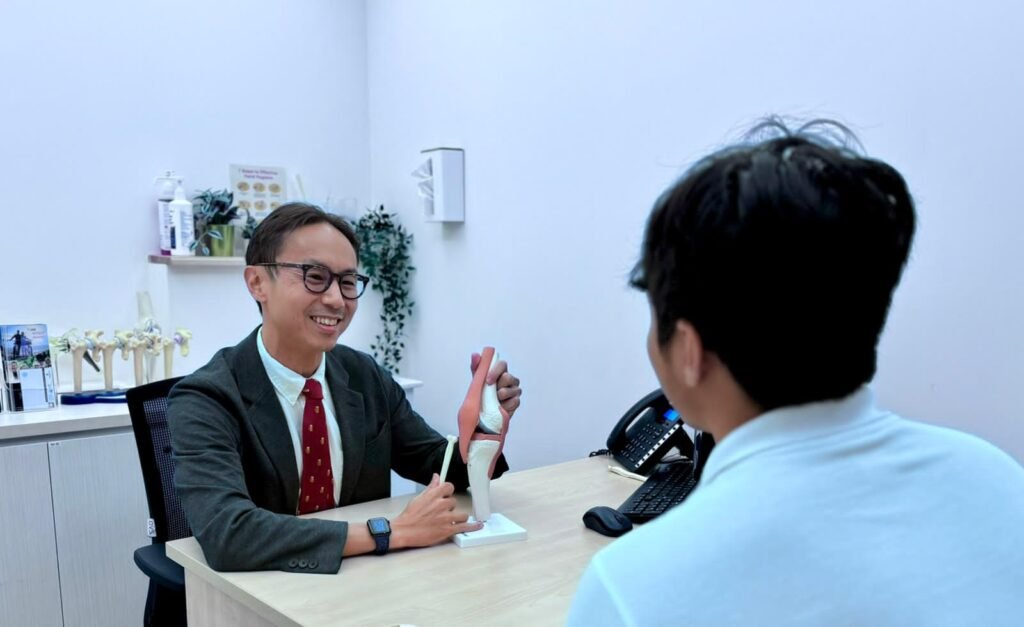Footwear plays an integral role in the world of sports, influencing both athletic performance and the risk of injury. The right pair of shoes can enhance performance, provide necessary support, and significantly reduce the likelihood of injuries. Conversely, choosing the wrong footwear can lead to a variety of issues, from minor discomfort to severe injuries, impacting an athlete’s ability to perform. Understanding the connection between footwear and sports injuries, as well as how the right shoes can boost performance, is crucial for athletes of all levels.
Sports footwear is meticulously designed to meet the specific demands of various athletic activities. Whether it’s running, basketball, soccer, or tennis, each sport requires footwear tailored to its unique movements and stresses. Running shoes, for example, are engineered to absorb shock and provide cushioning for repetitive forward motion. In contrast, basketball shoes offer robust ankle support and shock absorption to handle the demands of jumping and quick lateral movements.
Sports footwear plays a pivotal role in protecting athletes from injuries and enhancing performance. Designed as effective shock absorbers, these shoes mitigate the impact forces transmitted through the feet and lower limbs during high-impact activities, which is crucial for preventing stress fractures and joint pain. Proper support is essential for stabilising the foot and ankle, preventing excessive movements that can lead to conditions like plantar fasciitis or Achilles tendonitis. By maintaining proper alignment, sports shoes reduce strain on muscles and tendons, contributing to overall comfort. Additionally, adequate traction is vital to prevent slips and falls on wet or uneven surfaces, achieved through specific patterns and materials on the sole that enhance grip and stability. Flexibility in sports footwear allows the shoe to adapt to the natural movement of the foot, ensuring both comfort and efficiency. Shoes that are too rigid can hinder natural movement, leading to discomfort and potential injuries. Moreover, durable footwear is crafted to withstand the rigorous demands of sports activities, offering long-lasting support and protection and minimising the need for frequent replacements.
The relationship between improper footwear and sports injuries is well-documented. Many common sports injuries can be traced back to the use of unsuitable shoes.
Plantar Fasciitis – This condition involves inflammation of the plantar fascia, the band of tissue running along the bottom of the foot. Shoes lacking adequate arch support or cushioning can exacerbate the strain on the plantar fascia, leading to pain and discomfort. Athletes who frequently engage in high-impact activities without proper footwear are particularly susceptible to this condition.
Achilles Tendonitis – The Achilles tendon connects the calf muscles to the heel bone, and it can become inflamed due to improper footwear. Shoes that do not provide adequate heel support or those that place the heel in an elevated position can increase the risk of Achilles tendonitis. This injury often results in pain and stiffness in the tendon, especially after periods of inactivity.
Shin Splints – Shin splints are characterised by pain along the inner edge of the shinbone. This condition is often caused by excessive stress on the shinbone and the connective tissues attaching muscles to the bone. Footwear lacking proper cushioning and support can contribute to the development of shin splints, particularly in sports involving running or jumping.
Ankle Sprains – Ankle sprains occur when the ankle is twisted or turned beyond its normal range of motion, often due to inadequate support from footwear. Sports like basketball, which involve rapid direction changes and jumping, require shoes that provide sufficient ankle support to prevent sprains and fractures.
Blisters and Calluses – Poorly fitting shoes can cause friction against the skin, leading to blisters and calluses. While these may seem minor, they can be painful and disruptive, affecting overall performance and comfort.
Stress Fractures – Stress fractures are small cracks in the bone caused by repetitive stress. Inadequate shock absorption and support from footwear can contribute to the development of stress fractures, especially in high-impact sports like running.
Proper footwear is not just about preventing injuries; it also plays a significant role in enhancing athletic performance. The right shoes can make a noticeable difference in comfort, biomechanics, and efficiency.
Comfort is a fundamental aspect of athletic performance. Well-designed shoes that fit properly and provide adequate cushioning can reduce discomfort and fatigue, allowing athletes to focus on their performance rather than dealing with foot pain. Footwear that supports natural foot movements can improve biomechanics. This means better alignment of the foot and lower limb, which can enhance stability and efficiency. Proper arch support, cushioning, and heel support can optimise an athlete’s movement patterns, reducing the risk of overuse injuries and improving overall performance.
Shoes tailored to specific sports can improve efficiency by providing features suited to the activity. For instance, lightweight running shoes with responsive cushioning can enhance running economy, while soccer cleats with optimal traction can improve agility and speed on the field. Different sports have unique requirements for footwear. For example, basketball shoes with extra ankle support and shock absorption can aid in jumping and landing, while tennis shoes with lateral support can help with side-to-side movement and quick direction changes. Choosing footwear designed for a specific sport ensures that athletes receive the necessary support and features to excel in their performance.
Selecting the right footwear involves several key considerations. Understanding your foot type and the specific demands of your sport are crucial factors in choosing the appropriate shoes.
– Knowing whether you have flat feet, high arches, or neutral arches can help you select shoes that provide the right level of support. Specialty stores often offer gait analysis to determine your foot type and recommend suitable footwear based on your individual needs.
– Different sports require different types of footwear. Ensure that you choose shoes designed specifically for your sport to get the appropriate support, cushioning, and traction. Running shoes, basketball shoes, soccer cleats, and tennis shoes are all designed with unique features to meet the demands of their respective activities.
– A well-fitted shoe should provide enough room for your toes to move while snugly fitting the heel and midfoot. Shoes that are too tight or too loose can cause discomfort and increase the risk of injuries. Always try on shoes later in the day when your feet are slightly swollen to ensure a proper fit.
– Footwear loses its cushioning and support over time. Regularly replacing worn-out shoes can prevent injuries and maintain optimal performance. As a general rule, running shoes should be replaced every 300-500 miles, while other sports shoes should be replaced based on visible wear and tear.
– Consulting with a sports medicine specialist or a podiatrist can provide valuable insights into your specific footwear needs. They can recommend shoes that accommodate any existing foot conditions and enhance your performance.
The impact of footwear on sports injuries and performance cannot be overstated. Proper footwear provides the necessary support, cushioning, and traction to reduce the risk of injuries and enhance athletic performance. By understanding the specific demands of your sport, knowing your foot type, and prioritising fit, you can make informed choices that benefit your health and performance. At ApexSportsClinic, we emphasise the importance of proper footwear as part of a comprehensive approach to injury prevention and performance optimization.
Elevate your performance with Apex Sports Clinic! Schedule an appointment today for personalized, expert care in optimizing your athletic potential.


